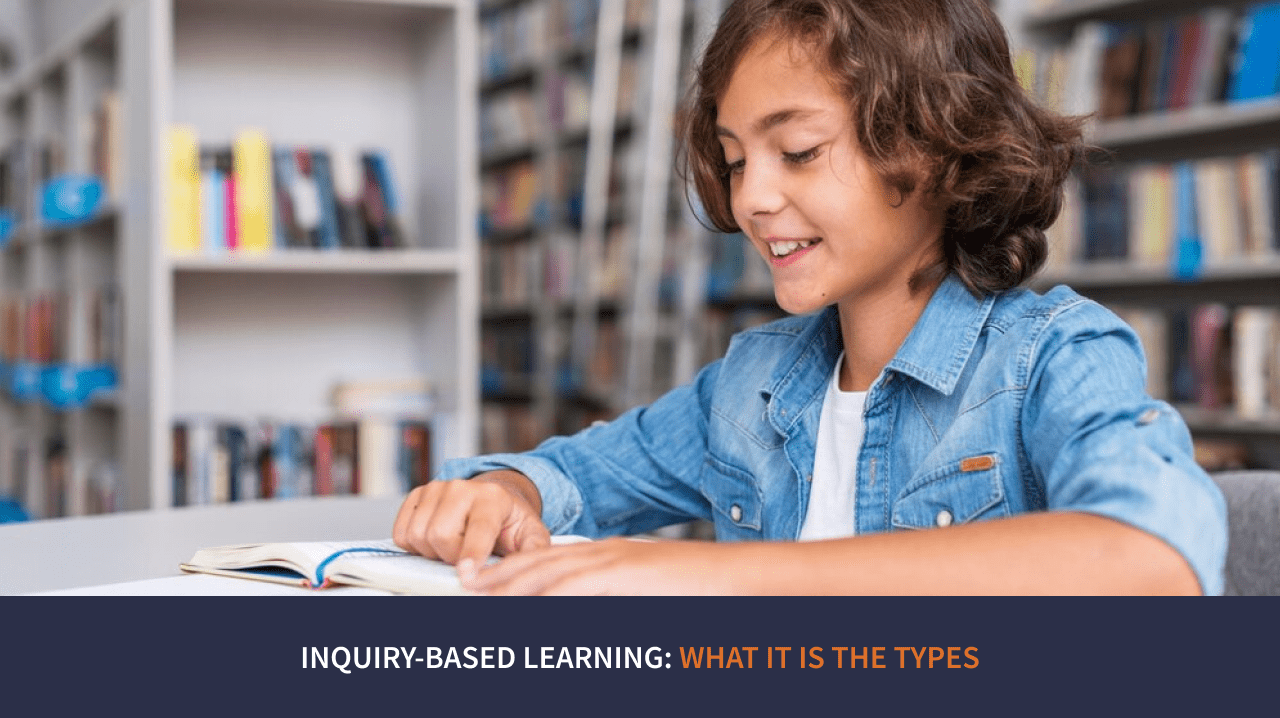Inquiry-based learning: what it is the types

Inquiry based learning is a process of educating learners by creating an environment that involves real-world connection, exploration, and investigation. The inquiry based learning approach encourages learners to participate in experimental and research-based learning by stimulating their curiosity. This method puts the learner at the center of the learning process, instead of simply grasping the information. Here, learners are encouraged to explore and discover knowledge on their own. This approach helps students develop their critical and analytical thinking and cultivate roots of a deeper understanding of the subjects. According to a study by the National Library of Medicine, inquiry based teaching is concentrated mainly on K-12 education, and very few are related to the university level. This approach to teaching is a way of building skills for the long term.
There are various types of inquiry-based learning and some of them are listed below:
1. Structured Inquiry Approach
As the name implies, the structured inquiry approach is a type of inquiry based education process. It provides the learners with a defined and rigid framework on which they are supposed to work. The teachers give a step-by-step question to consider, along with it an investigation method for working towards a desired result. Here, in this method, students are well informed that they have to work within the given investigation method to generate a conclusion that can be justified by evidence.
The structured inquiry process cultivates in the learners an oraganised nature as this method asks them to work systematically.
2. Problem-Based Inquiry Approach
A problem-based inquiry approach is another type of inquiry based learning approach that focuses on problem-solving. Learners are given real-world problems to solve, these types of inquiry based learning are often used in mathematics and engineering classes. An empirical study from ScienceDirect journals shows the effectiveness of students who use problem-based approaches have a higher likelihood of conceptual change. It fosters a deep understanding of the subject matter, allowing them to explore and analyse a problem and its solution. A self-directed form of method that allows to cultivates curiosity and creativity in the learners.
Promoting critical thinking in learners allows them to engage in real-world problem solving.
3. Confirmation Inquiry Approach
This methods of inquiry based learning education provide the learners with questions, a method, and a result that is already known. Learners are told to rework the thought process to confirm the outcome of the result. Thus, the confirmation inquiry approach method provides a solid structure with fixed logical paths, helping learners to practice their investigating skills and expand their knowledge.
4. Open Inquiry Approach
The open-ended inquiry approach is one the types of inquiry based learning approach that allows the learners to develop their questions to reflect upon. In this method, learners originate their investigation methods and follow them. After the investigation process, learners conclude, they can be invited to discuss and debate the issue from different perspectives and extend their conclusion, if significant.
- An open inquiry method affects learners in a quite different manner compared to the other types of inquiry based learning approach.
- It instills in them the freedom to choose their type of question
- Fosters creativity, and a deeper sense of curiosity
- Encourages learners to define the learning journey
5. Guided Inquiry Approach
The guided inquiry based education method is considered to be the best suited to elementary and middle school learners. It demands heavy involvement from the teacher’s end. In this method teachers guide the learners step by step through the inquiry process, prompting the students to ask questions and develop solutions.
The guided inquiry approach differs in some aspects from the other types of inquiry based approaches:
- Guided inquiry based learning approach maintains a balance between rigid and controlled learning approaches.
- In this method, a teacher plays a smoother role in comparison to other types of inquiry based learning.
- The guided inquiry approach cultivates deeper understanding with the guidance of the teacher.
Inquiry based learning approach leaps over the boundaries of education, making the way to a bright future where learning is restricted to conservative-based. Inquiry based education imparts growth and innovation, allowing learners to focus on research-based and scientific methods of learning. By adopting this approach learners are encouraged to explore and discover knowledge on their own, allowing them to develop their critical thinking and problem solving skills. If you are a parent seeking admission to your child and searching on the internet with terms like IGCSE schools in Pune, and top international schools in Pune then MIT Gurukul is one of the best schools offering resource-based education with global opportunities for academic growth and overall development. With a unique blend of Guru-Shishya parampara and modern teaching methodology, MIT Gurukul ensures students are provided with high-quality education and skills to become competent in the future.

